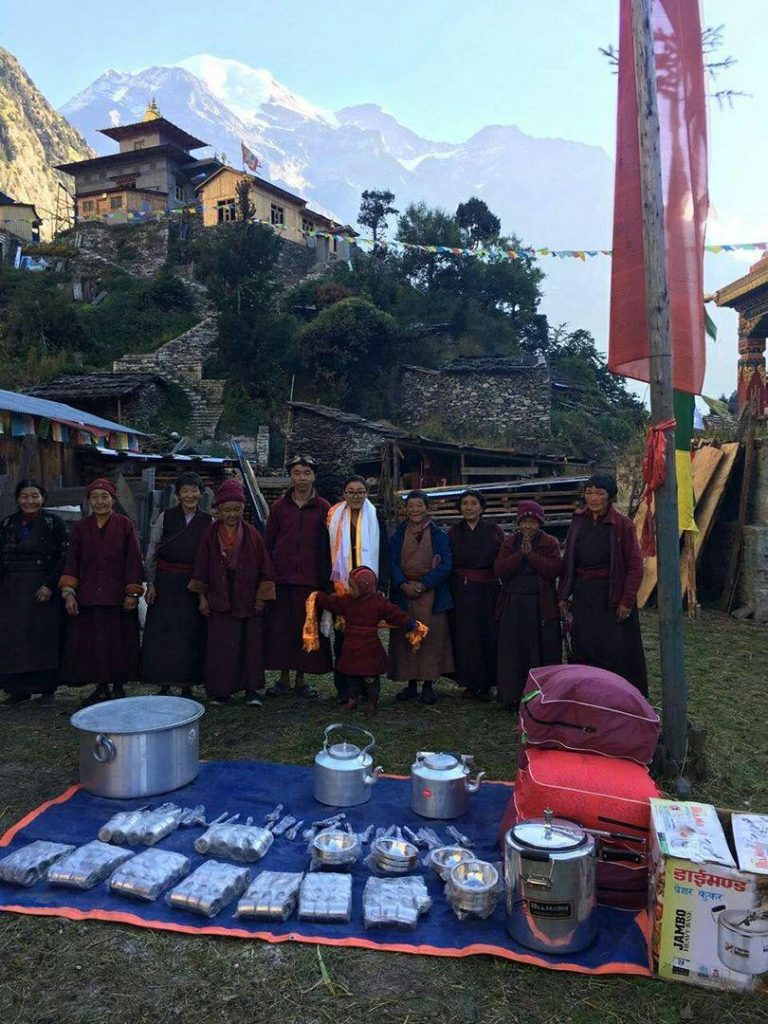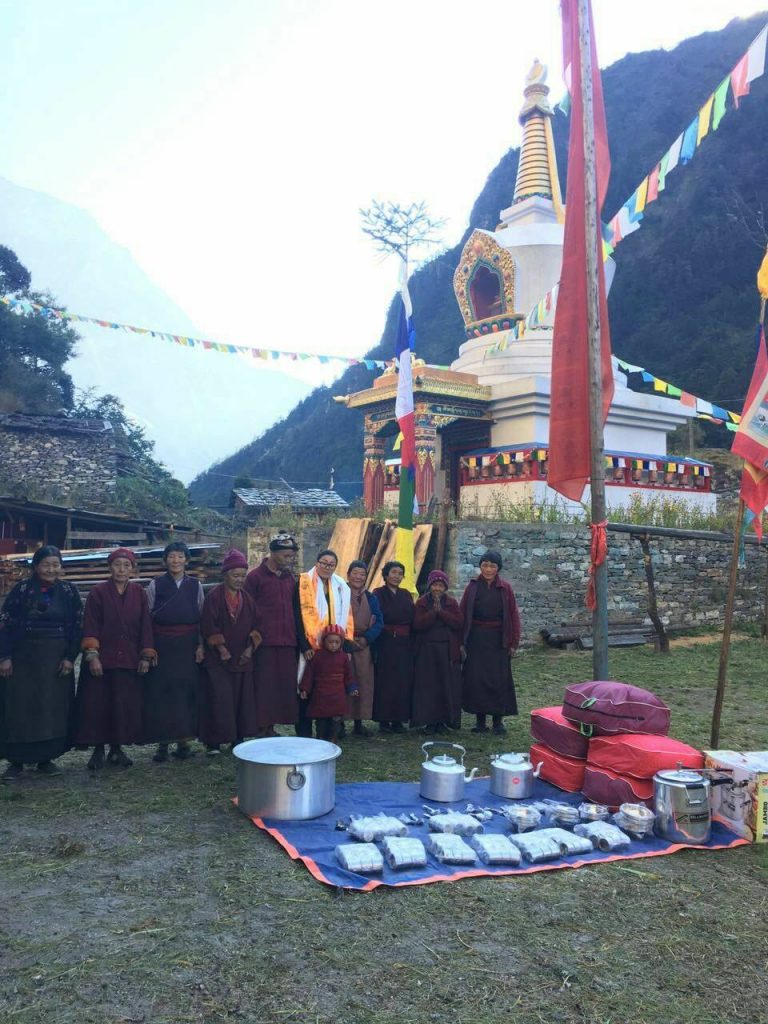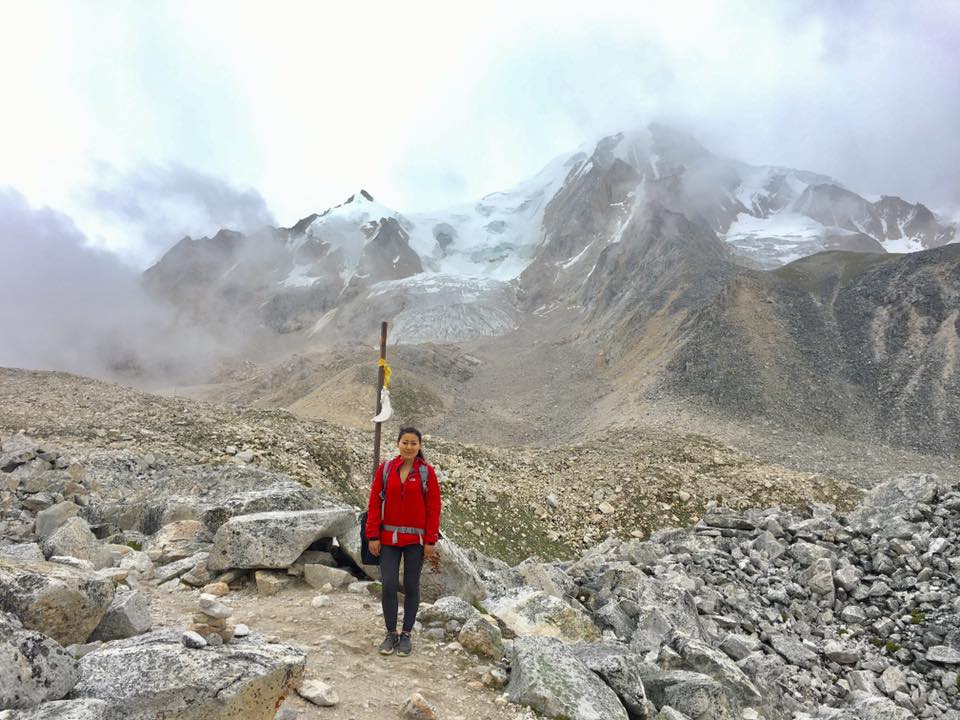Tashi Dolma Lama is one of our SMD alumna who won a scholarship to finish her high-school diploma in Canada at Bishop Strachan School in Toronto, Ontario in 2011, after which she went on to complete her Bachelor of Arts & Sciences Degree at Quest University in Squamish, BC, Canada earlier this year. She writes to us about her recent trip back to Nepal to give service to villages in her birthplace of Nubri valley:
After the 2015 Nepal earthquakes, my two SMD School friends, Dechen and Nangsal, along with our Canadian friend Renee, raised funds to help our villages during this devastating time. We brought together a group of supporters, and successfully executed a Nepali night, which included presentations about Nepal, the earthquake, music performances, a film screening, and sales of arts and crafts. It was truly a night of kindness and generous donations from Vancouverites.
Soon after the event, we donated part of the funds to immediate earthquake relief efforts, and planned for a hands-on project with the remaining funds. Since I am in Nepal now, I took the opportunity to organize a specific project for the communities in Nubri valley. Nubri valley sits at an elevation of about 12,000 feet (~3,600 m) and consists of around 15 villages at the base of Mount Manaslu, close to the border with Tibet. The villagers are subsistence farmers who live the Buddhist way of life and speak a dialect that sounds similar to Tibetan.

Tashi Dolma Lama delivers pots and pans to villages in Nubri Valley, Nepal, September, 2017.
After speaking to the locals and brainstorming numerous ideas, we decided on a ‘Pots & Pans Project,’ as it is very laborious for villagers to bring large supplies into the Nubri valley—the villages there are only accessible by foot, usually a five-day trek from the closest road and an additional one-day bus-ride to Kathmandu where these types of supplies are available.
I bought kitchen supplies, such as large pots, pans, bowls, cups, and spoons for four of the villages of Nubri. I had to hire a helicopter to deliver them, given the distance and lack of road infrastructure. These kitchen products can now be stored at each of the local ‘gompas’ (monasteries) and used by the villagers during communal events like marriages, festival gatherings, prayers, meetings, funerals, and more. Villagers often have to walk one hour or more to attend these events. One villager put it this way, “now we don’t have to carry our own utensils to events, which is great because then my kids won’t lose our spoons all the time!”
This was my first ‘big project’ in Nepal. As a woman in a patriarchal society, I faced challenges that I think were truly unnecessary. Multiple shopkeepers wanted to charge me much more than my male friend for the same products. In another instance, a male employee of a helicopter company hung up on me multiple times and didn’t take me seriously. He would not give me the answers I needed regarding our flight the next day, yet he would immediately answer my younger brother when he made a call with the same inquiry. The next day, when the helicopter was about to depart, another male employee tried to change our landing destination at the last minute on the tarmac even though we had already paid for our intended destination in Nubri. He wanted the pilot to land in Samaguan, which is a five-hour walk (one-way) from my intended destination. I believe he thought that I, being a woman, would not speak up and just obey his commands. Well, he was dead wrong. I fought back and got the helicopter to land in our village to personally deliver the goods.
I am grateful for this learning experience, including the joys of working with the villagers and the challenges of being discriminated against because I am a woman. I would like to thank everyone involved for their support and making our Nubri valley project a success.


